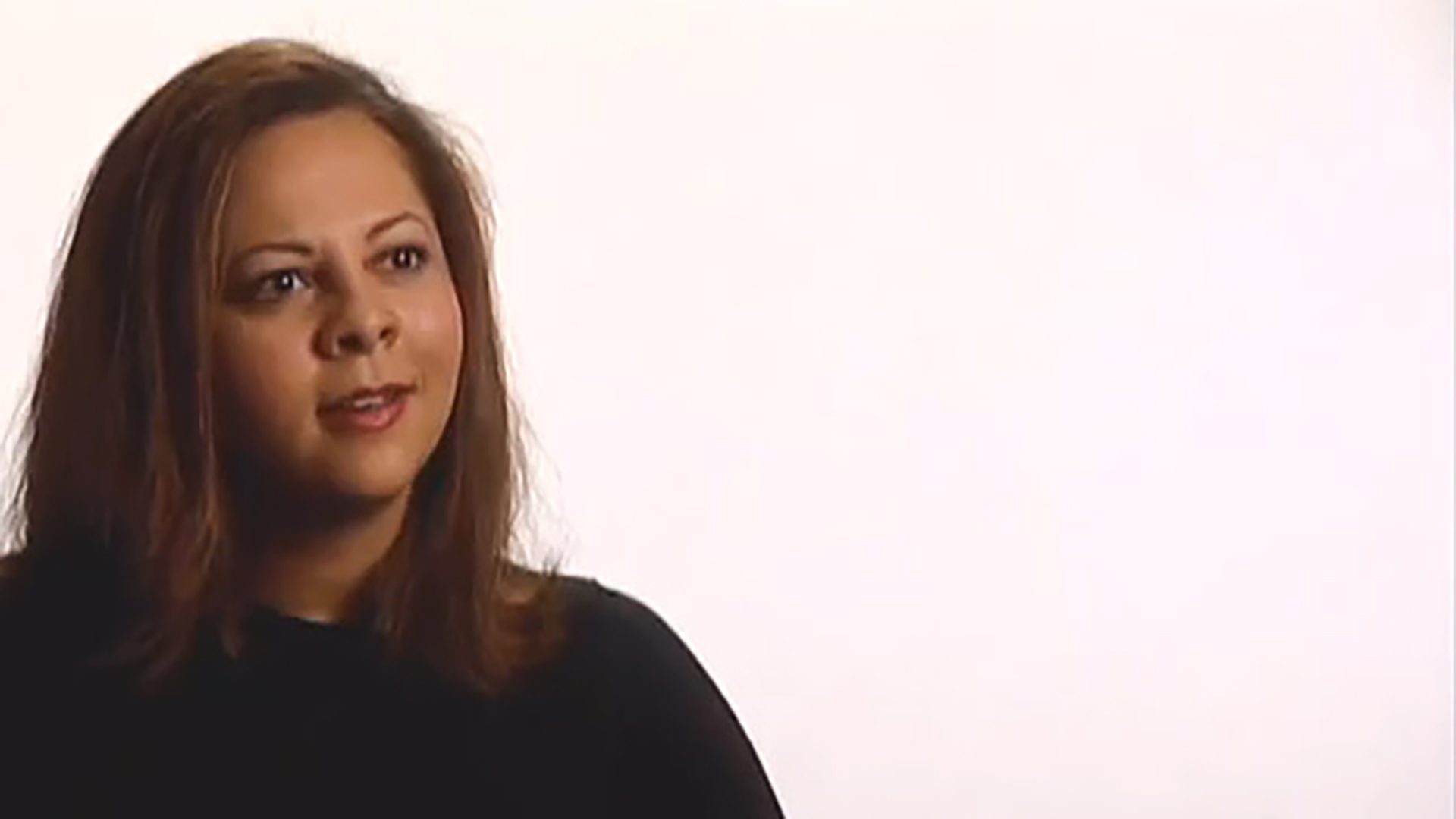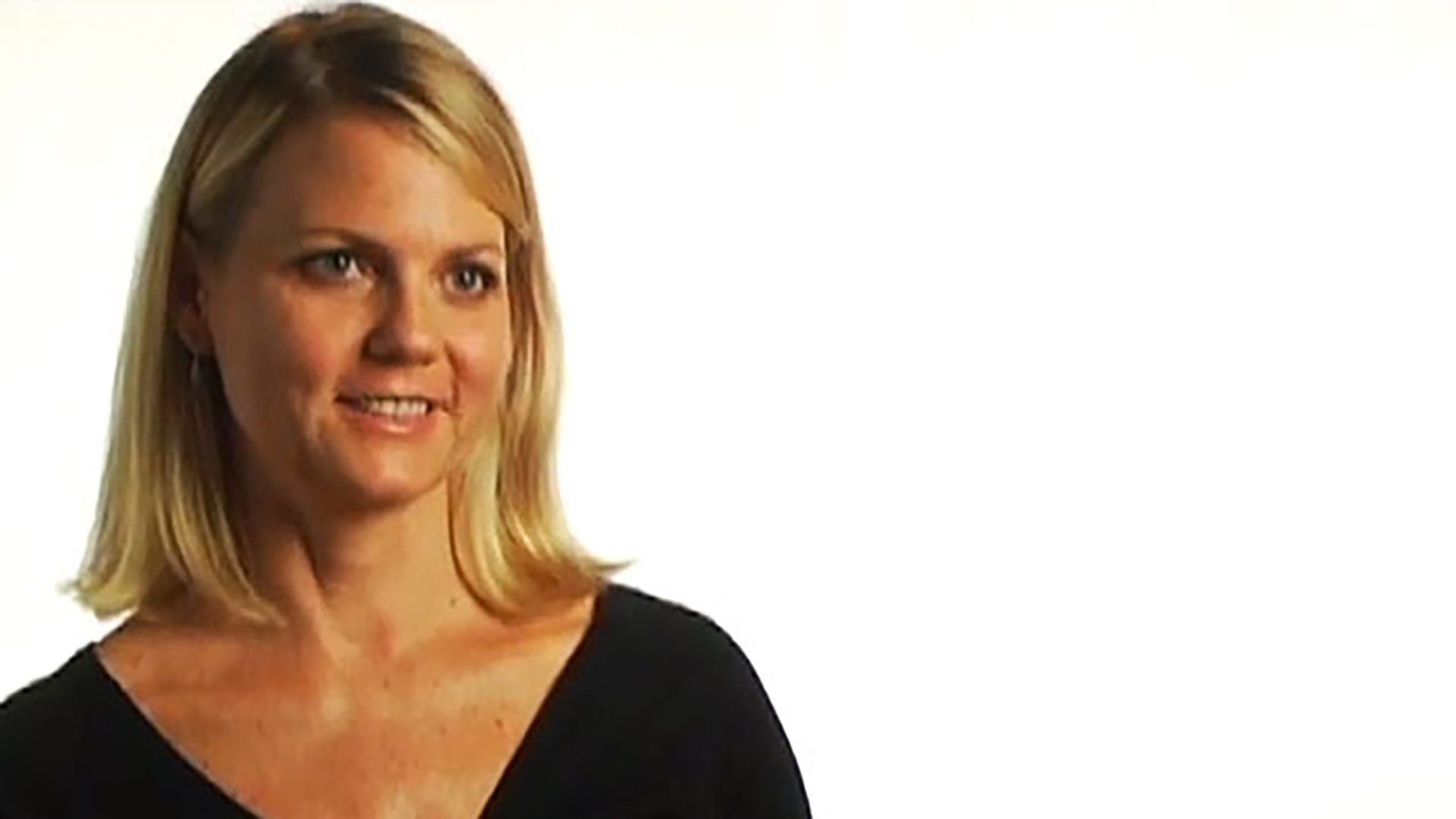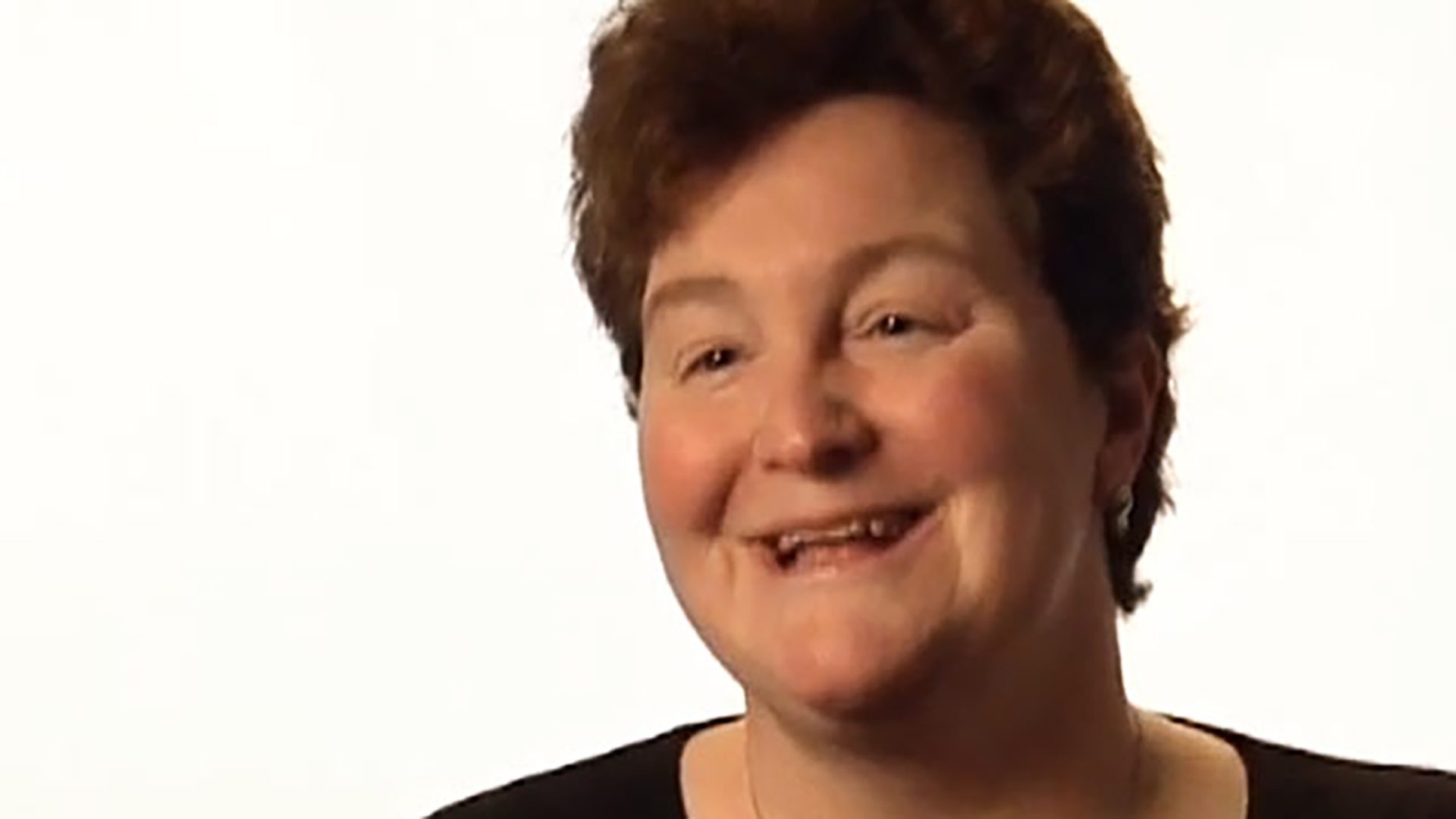Survivor Interview – Fayruz B.
Fayruz is a Hodgkin’s lymphoma survivor. She talks about the thyroid condition she developed due to radiation, relationships with family, and reducing stress.

The initial step in the treatment was having two surgeries—one was a biopsy to locate the initial tumor, and the second was having the spleen removed to assess whether the cancer had spread. So I had quite a bit of recovery time and still have a long scar above my belly button. That’s a constant reminder, but it’s almost kind of like a victory scar, I think, at this point.
The spleen is not, as I understand it, a very necessary part of your body, but it does have a function in the immune system. One of the things that my oncologists and doctors always said is, “You want to be careful with your immune system and just keep an eye out. When you get sick, don’t just blow it off.”
That’s not to say that you should become a high-maintenance person or anything like that, but take care of you. Be aware of yourself, because you are going to try to be a wife or a mother or a friend or whatever, and if you can’t be whole then you’re not going to be able to be there for other people. Whether you’ve had cancer or not, everyone ought to try to live their life that way, but I think it’s especially true for people who have had a diagnosis of cancer.
I feel so much more empowered now than when I was diagnosed. Our whole family was overseas, and in North Africa, cancer is a death wish. Having lived here now most of my life and having been a survivor for this long, I just feel like if you can detect it early, you have so much better chances of beating it; of living a much more empowered and knowledgeable life going through it, and not being as afraid. I was so afraid. I had maybe three brochures that they gave me, and that was it. I think these are very different times.
A good ten years later, I developed a thyroid condition. Oftentimes when I would have a cold, my voice would go, which was kind of a trigger. We had it checked, and sure enough, the lack of thyroid hormone was off the chart. And then it kind of all made sense: the fatigue, the hair loss, skin irritation, mood swings, a little depression. My doctor put me on a medication I’m still on now. Right now, I’m working with an endocrinologist to really find the right dosage. There are other alternative methods as well, I’m sure, and as I continue to seek better and more qualified care for my post-cancer treatment, hopefully I can identify that. I would love to not have to take a medication for the rest of my life, but if all that it is taking a little pill every morning, then so be it.
If you’re not happy with the care that you’re getting from your doctor or if even the chemistry is not right and you don’t feel like he or she is looking out for you, find someone else. That’s been one of the hardest things for me. As a very busy young professional, I want to know that, once I finally get that appointment I’m going to get my answers. It’s frustrating when you don’t, because then you have to look into getting someone else and taking the time to schedule that appointment. For me, that’ll mean taking at least a day or a few days to go and do all the tests out of the city or to another location. But if I want to feel like I’m doing what I need to do to take care of myself, I have to be the one to take it in my own hands and find the doctors who are going to work with me.
My personality is go, go, go. If I come home and don’t actually have anything to do, it drives me crazy. I can’t just be still. I don’t know if that has something to do with being a cancer survivor and I want to always keep my mind busy and on other things, but one way that I’ve found to deal is just to keep myself engaged in things that I enjoy. As crazy as it may sound, sometimes logging onto my email for work and clearing my in-box is very relieving to me, because I feel like, okay, I’ve reduced my stress significantly from having to come in the next day and have to respond to 80 emails. I’ve taken my dog out for a run in the park, or other times it might be weeding in the garden. I think one of the best ways to deal with the stress is to just think about the things that bring you pleasure in your life and pursue them.
The people that are closest to you are always going to have their own issues and fears. My husband’s biggest fear has been for me to have a relapse or some other kind of cancer. He doesn’t really talk about it much, so it’s kind of an odd subject—not that he wouldn’t, but I just don’t think he knows what to say. He says all the right things: “I just want you to be healthy and I want you to be happy and I’m here for you,” but I know there must be something more going on at times. I try not to push the subject, but you can’t avoid it. It’s there.
My mother is another example of a relationship on an emotional rollercoaster. She had a husband diagnosed with leukemia, then relapse with leukemia, then pass away from a bone marrow transplant, then had a child at 16 diagnosed with cancer. Typically, at the age of 15, 16, mothers and daughters are generally finding a new relationship where the child is more independent. In our relationship, that never happened. It was a fusion, more than anything, because she was afraid I was going to die. Even after the cancer, any time I get a cold she’s constantly touching and asking, “Are you okay?” And she’s always saying, “You look like you’re too stressed now. I don’t want you to get sick.” So it was a different relationship and it wasn’t until I became married that we had to really build a new kind of relationship.
I’ve found that it’s easier for me to tell people about my cancer than to have them ask, to make them not feel that awkwardness. I’m still working through it myself but, at this point, it’s a part of who I am, and I’m very comfortable talking about it. It’s not like I wear it on my sleeve, “Oh, I’m a cancer survivor,” but it’s still a learning experience every single day. It does get easier over time. It’s nothing to be ashamed of or afraid of. And if people can’t handle it, I think that that’s their issue.
Every time I hear people stand up and tell their stories, I become an emotional wreck. I hold it back, but having a chance to hear other people’s stories — and, in some way, almost relive the experience with them — while it’s very difficult, is very relieving as well. I think for me it is realizing a community of survivors does exist that I didn’t know about when I was going through it.
Being involved in the cancer community through volunteer service and financial support is a way that I can know that I’m doing my part to help others and, at the same time, continue to deal with it. The scars and the physical conditions that result later in life where you have to take medication on a regular basis — all those things help you remember that it’s there, and when you can be involved and know that you’re helping further the cause and further help people, it makes a big difference. It helps me be a better survivor, if you can say that. I want so much to give back to people that which I didn’t have when I was going through it. And by doing that I’m actually getting a lot out of it, too.
I now look at cancer as something that I’m glad happened to me. I can’t imagine if it hadn’t happened. I’m not saying I would wish it on people, but it’s made me really appreciate more things in life. It causes you to stop from time to time and just reflect on life and why we’re all here, and if you don’t get that deadline thing done because something else is keeping you from it, it’s not the end of the world. Being a cancer survivor for me has meant to just continue being who I am, but to be more of who I am. To do more of the things that are in my heart and in my soul that maybe I wouldn’t take the risk or the chance of doing otherwise. I think being a survivor allows you the freedom and the integrity to just do that.
My name is Fayruz Benyousef and I am a 16-year Hodgkin’s disease survivor.

